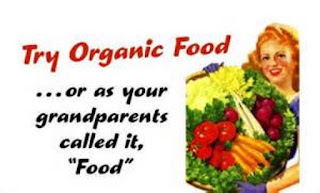Saturday, February 11, 2023
What is the difference between open pollinated, hybrid and heirloom seeds? It can be confusing buying seeds or plants with the different terms and descriptors used in seed catalogs and stores.
Open Pollinated
Open pollinated at a high level means that they are seeds or plants that were grown by natural pollination. When you plant an open pollinated variety, you can use the seeds they produce to grow more plants that are like the parent(s). One watch out is that some varieties cross pollinate easily with other varieties like them so you will get a cross between the two parents. If you have a variety that cross pollinates easily, you will have to grow it spaced away from the others they cross with if you want to use the seeds to grow the same type as the mother plant.
You'll also see descriptors that say the variety is "self pollinating" which typically means that it will pollinate itself and you will get seeds that will grow plants like the mother plant even if planted close to others. If you are up for surprises, go ahead and plant seeds that could potentially be crosses. You never know, the cross may be the best yet!
Heirloom
Heirlooms are plants that are open-pollinated, have been developed using classic breeding procedures, and are at least older than 1951. Some believe only those that are 100 years old qualify. Heirlooms have been handed down from generation to generation. Open pollinated means that you can grow a plant just like the parent from the seeds. You can use the seeds from heirlooms or any open pollinated veggie you buy in the store to grow them in your own garden.
Hybrid
They are a modern cross between 2 different plants. Plants are artificially pollinated. Many are infertile meaning they will not produce viable seed. This can be a good thing if you want a seedless variety. The hybrids that do have seeds will not yield the same plant as the parent. Hybrids are typically bred to provide plants that have better yields and/or better disease protection. Many feel that hybrids sacrifice flavor for their other attributes.
If you are having a particular pest issue, a hybrid may help. Be sure to choose a hybrid that was bred for resistance to the issue you are having. Hybrid is not the only option. You can also look for open pollinated or heirlooms that have a resistance to the issue you are having in your garden. For instance, I grow the heirloom Blauhilde purple podded pole beans in my garden for its mosaic virus resistance. Of all the romano type beans, it stays the healthiest in my garden conditions.
Organic
Seeds can only be labeled as organic if they were grown by certified organic farmers. The criteria for being certified organic is very stringent. Organics cannot be genetically modified. Organics cannot have been grown with any synthetic pesticides, herbicides, fungicides, or fertilizers being used. A farmer has to be chemical free for 3 years before they can be certified organic (and keep very detailed records to prove how they grew their seeds and be inspected yearly). Open pollinated, heirloom and hybrid seeds and plants can be labelled as organic if they were raised following organic practices.
You cannot have organic GMO’s as no GMO can be labeled organic! You can have heirlooms that are not raised using organic practices and will not be labelled "organic".
I use all organic practices in my garden. Why? Studies have shown that conventionally grown food contain pesticides. I just feel that if something was developed to kill other living creatures, it can't be good for you. Besides, our grandparents grew great gardens the organic way! USDA study shows 85% of foods tested contain pesticides
Why would you want to save your own seed? For one, it is a gift that keeps on giving year after year. I have seeds I have saved from years ago that are still germinating great because I store them for longevity. Each new generation will be more adapted to your specific garden conditions so you can potentially be developing varieties that will be better producers and better tasting than ones bought at the store.
Drawbacks to seed saving? It does take a few minutes to do, you do have to label them and you do have to keep them someplace until you are ready to use them. Besides the time, if you do get a disease issue in your plant, it can be in the seed of the plant. Using those seeds next year can propagate the issue. If you have beautiful, healthy plants, be all means try saving the seeds from the best to plant again next year!
So, if you want to buy seeds or plants that you do seed saving for next season's garden, be sure to purchase those with heirloom or open pollinated descriptors. You can buy organic seeds and transplants on-line and in big box stores these days. Bonnie (sold at big box stores) transplants started offering organic varieties a couple years ago. Many local nurseries and even farmers markets sell not only flowers but vegetable transplants, having varieties you may not see at the big box store. Buying local also keeps your dollars in your area.


No comments:
Post a Comment